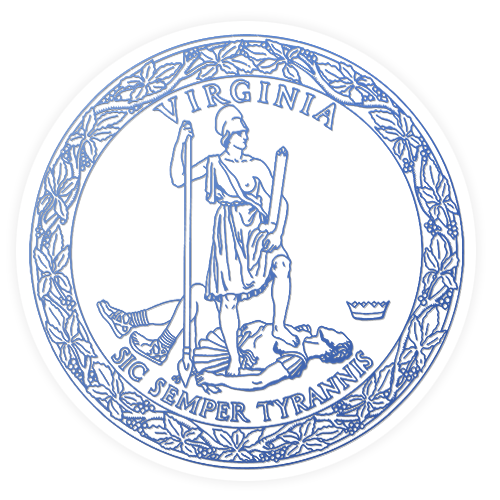|
RICHMOND, VA – Governor Glenn Youngkin today announced establishment of the Virginia Security Corridor partnership and award of two federal Sentinel Landscape designations in eastern Virginia. The designations will strengthen military readiness, conserve natural resources, and build working lands through integration of federal, state, local, and non-governmental partnerships. The partnerships advance mutually beneficial land-use initiatives that complement Virginia’s military, forestry, agriculture, and recreation economies by connecting landowners with voluntary conservation easement assistance programs.
The Sentinel Landscapes Partnership was founded in 2013 by the U.S. Department of Agriculture, Department of Defense, and Department of the Interior. It seeks to prevent encroachment on military missions, increase working lands, build resilience against climate-induced hazards, conserve key habitats, benefit water quality, and protect threatened species. Virginia governance partners include the Secretary of Agriculture and Forestry, Veterans and Defense Affairs, and Natural and Historic Resources. Program management will be led by the Department of Forestry.
“The Virginia Security Corridor partnership delivers a collaborative and competitive advantage for federal funding and authorities that will increase our military value, strengthen our agriculture and forestry economies, conserve natural resources, and contribute to our resilience,” said Governor Glenn Youngkin. “We will put the partnership to work to strengthen the Commonwealth and our Nation’s security.”
While preserving military mission space, the partnership will grow Virginia’s working lands and protect natural resources. “The Virginia Security Corridor partnership is home to some of the Commonwealth’s most abundant natural resources, which includes productive forests, open and active agricultural lands, and complex marsh and riverine systems that all connect to the nation’s largest estuary – the Chesapeake Bay,” said Secretary of Agriculture and Forestry Matthew J. Lohr.
“Conserving our working forests and natural spaces is important to all Virginians,” said Virginia Department of Forestry State Forester Rob Farrell. “The Sentinel Landscapes designation is an important step to creating a collaborative strategy to support private landowners with technical and financial resources that align with their stewardship goals. This can have a ripple effect not only for the landowner, but for Virginia’s future generations and forests.”
The Virginia Security Corridor partnership includes 10 military installations and covers 2.9 million acres that support mutual military, agriculture, and recreation land interests. It is comprised of two designated landscapes along Virginia’s Golden Crescent. The northerly landscape is named “Potomac,” the southerly “Tidewater.” A detailed map is available here.
"The designation of the Potomac and Tidewater Sentinel Landscapes in the Virginia Security Corridor is a unique opportunity for the Department to strengthen military readiness while also supporting climate resilience and conservation," said Mr. Brendan Owens, Assistant Secretary of Defense, Energy, Installations, and Environment. "The work of the partners in these new sentinel landscapes will preserve working lands, combat biodiversity decline, safeguard habitats and protect water quality. All of these important outcomes will be achieved while simultaneously addressing the encroachment challenges confronting the 10 military installations in the Virginia Security Corridor."
“Military investment accounts for nearly 20% of Virginia’s economy and the Sentinel Landscape designation increases Virginia’s military value. It protects and preserves our military mission space and builds adaptability for future growth,” said Secretary of Veterans and Defense Affairs Craig Crenshaw. “The Virginia Security Corridor partnership is important for the nation’s security and the Commonwealth’s prosperity.”
The initiative is a result of integrated partnership among federal, state, local, and non-governmental stakeholders. “The state of Virginia, including the Natural Resources Conservation Service and its conservation partners, is utilizing every conservation tool in the toolbox here in the Commonwealth and we are very much looking forward to expanding our partnership and conservation opportunities via the new Sentinel Landscapes Initiative designation to continue and grow our efforts,” said Dr. Edwin Martinez Martinez, Virginia State Conservationist, Natural Resources Conservation Service Agency.
“This is a dynamic partnership that will conserve, connect, and protect. It complements our efforts to grow conservation and recreation lands, promote clean water, and build resilience in our watersheds and coastal zone,” said Secretary of Natural and Historic Resources Travis Voyles.
“Sentinel landscapes can encourage public/private partnerships that promote conservation of lands and waters near military installations and boost their ability to withstand the effects of climate change while supporting national security readiness,” said Zack Greenberg, an officer with The Pew Charitable Trusts, the lead NGO that worked with federal and state partners to secure the designations. “Virginia now joins a network of similar commitments stretching from Delaware to Florida, creating a substantial opportunity for governments and the private sector to pool resources and collaborate regionally to support conservation, biodiversity, and military facility and mission readiness.”
Two federally funded coordinators will join the Department of Forestry to manage the Potomac and Tidewater landscapes.
|




